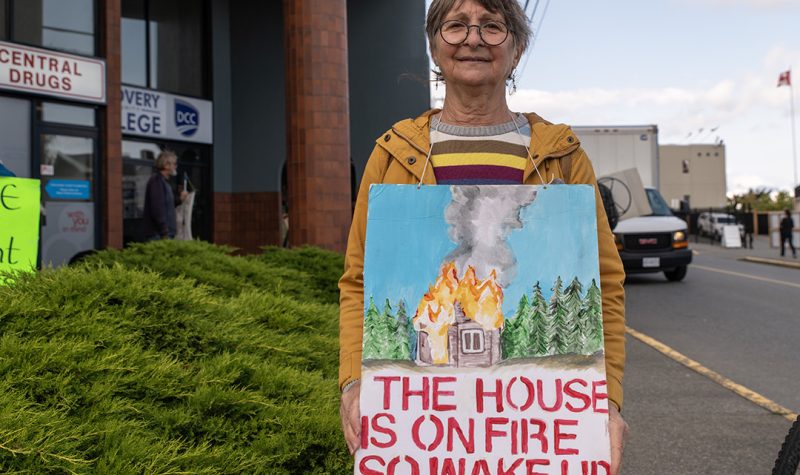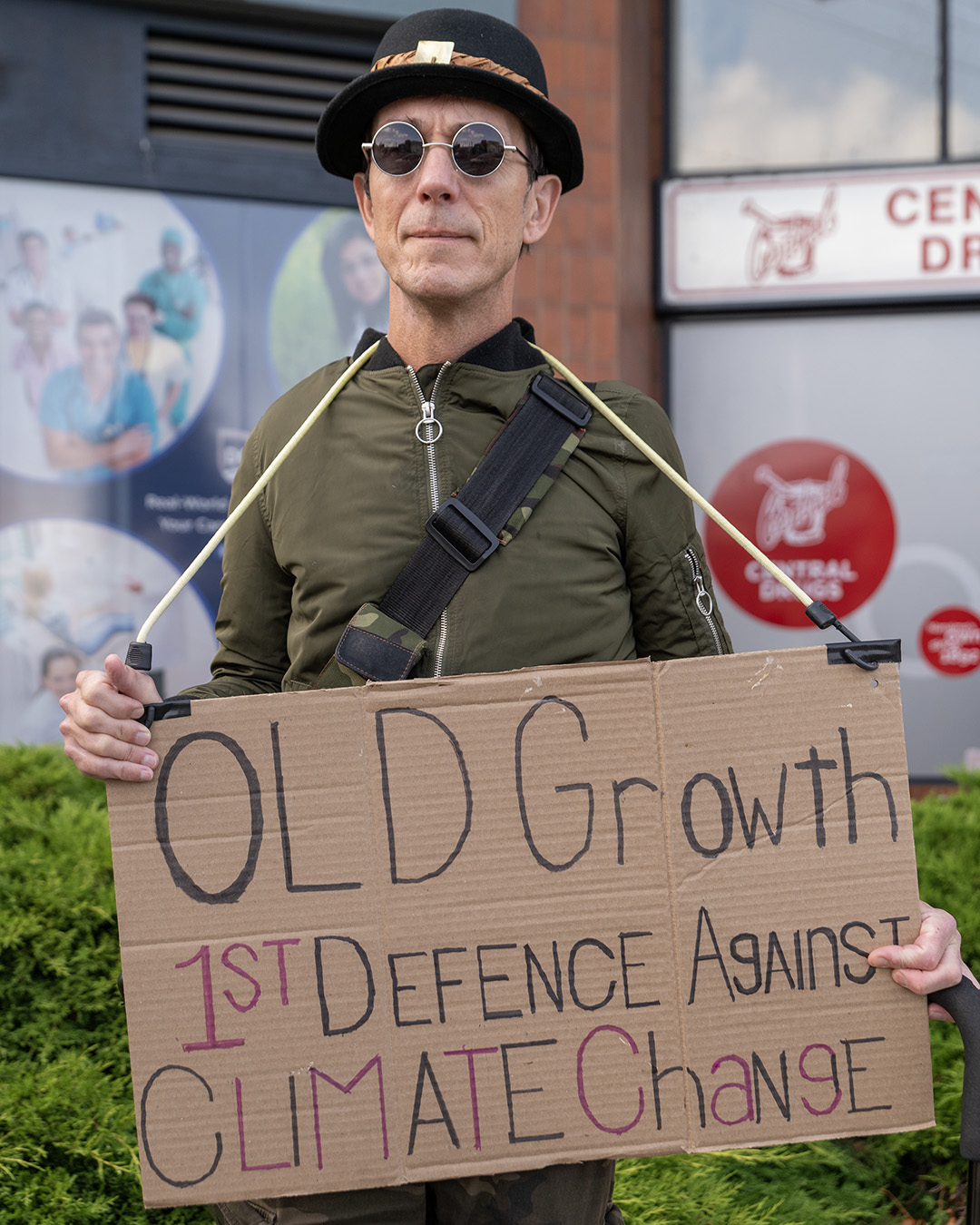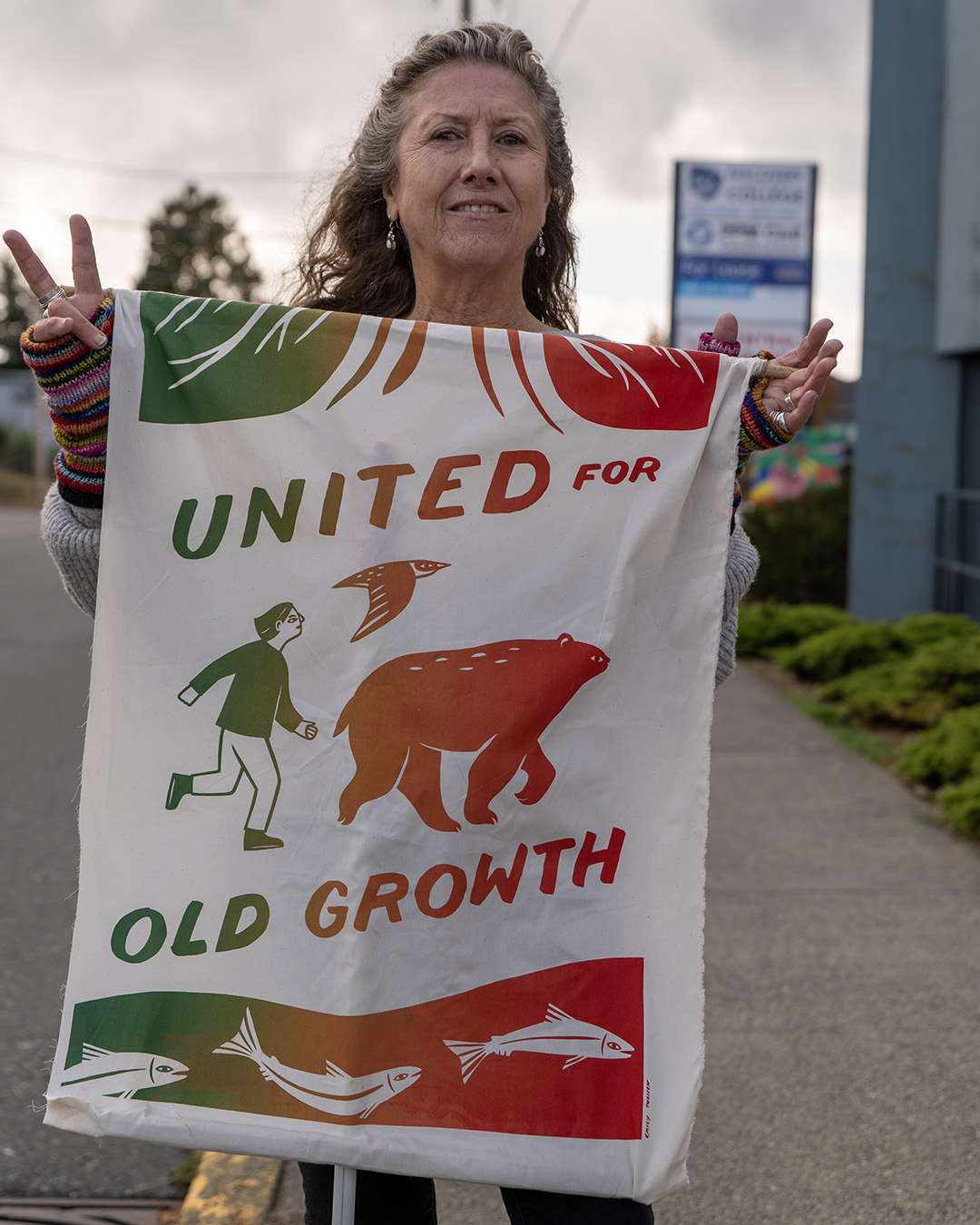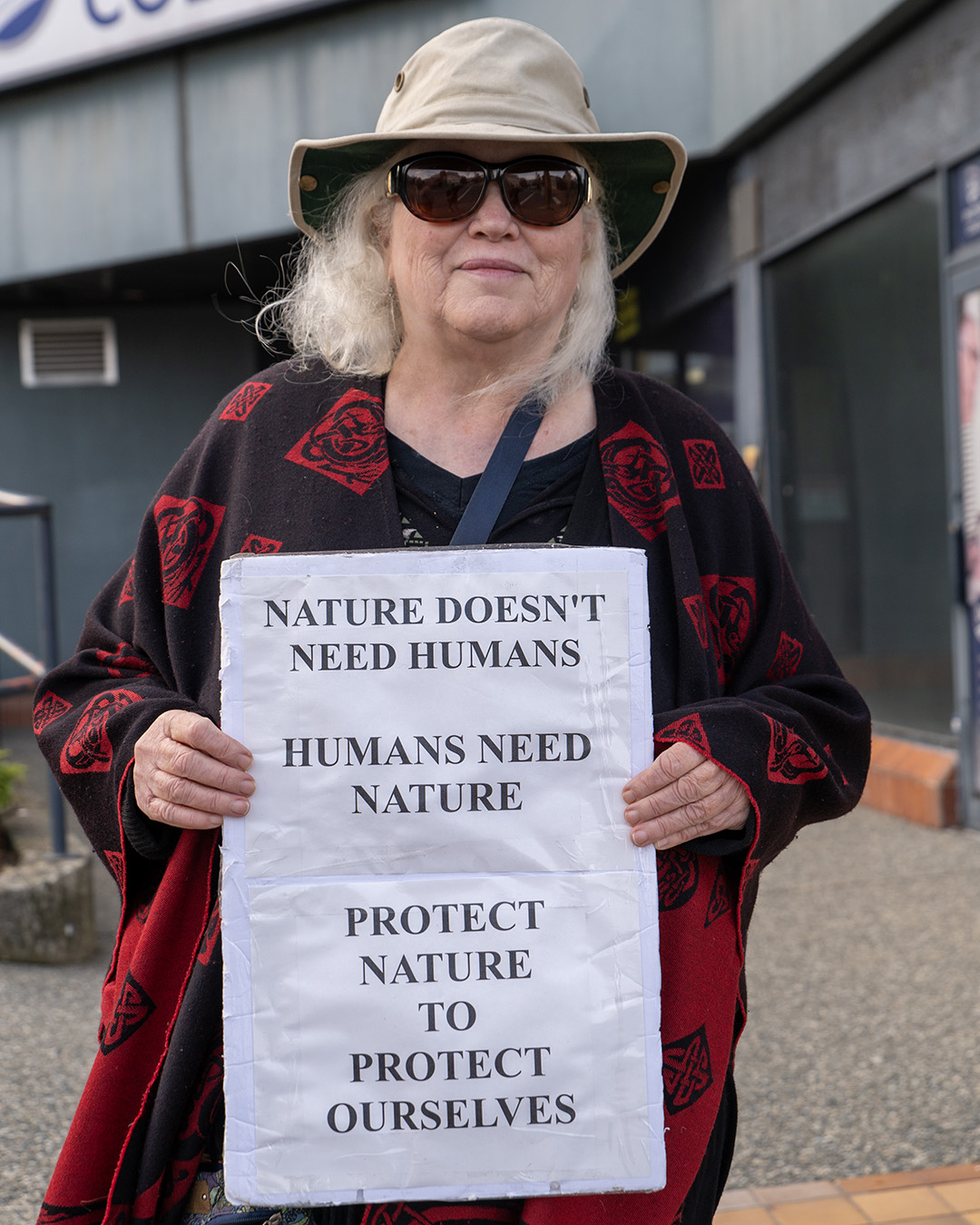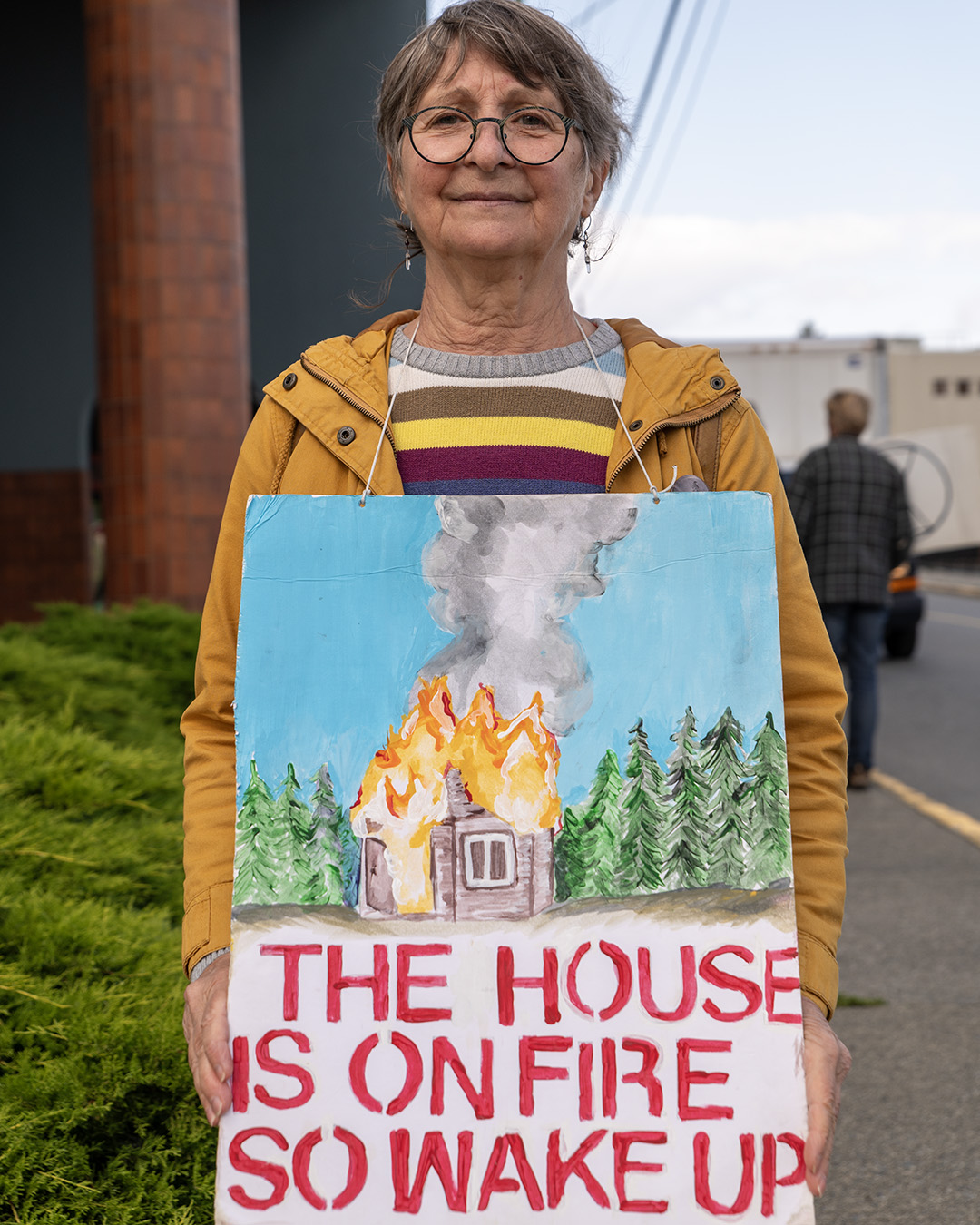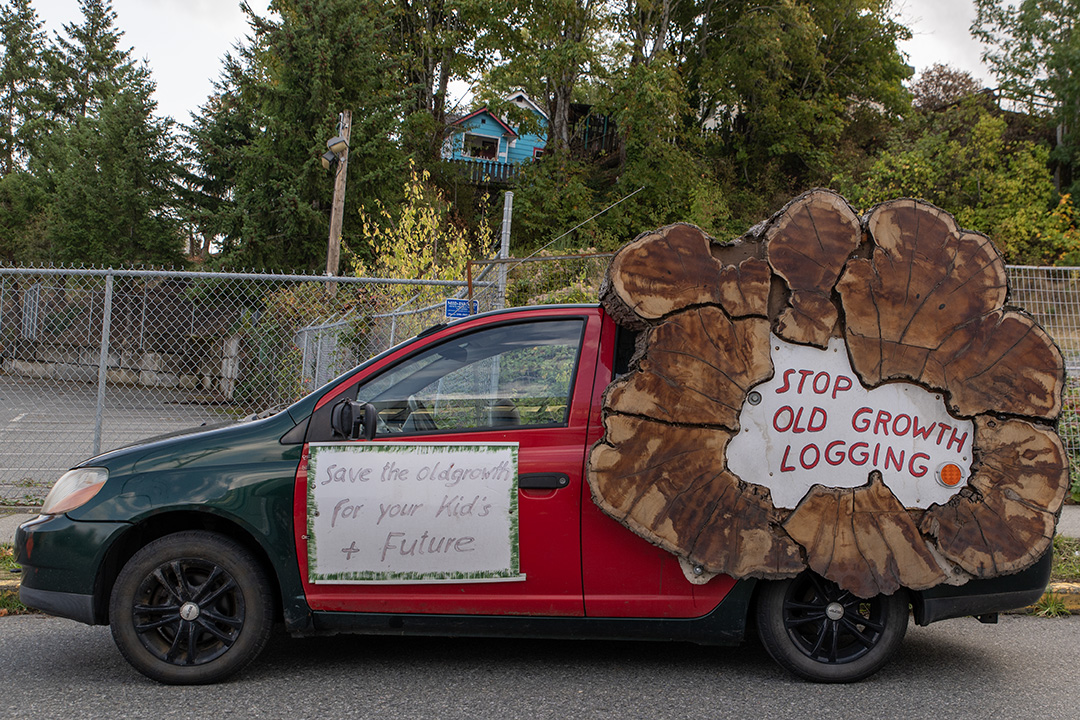Protests against the logging of old growth forests took place Thursday across British Columbia.
David Quigg, an organizer with the Sierra Club, was outside NDP MLA Sheila Malcomson’s office in downtown Nanaimo marking the three-year anniversary of the provinces’ Old Growth Strategic Review. Malcomson’s office was one of a dozen NDP MLA offices targeted by protesters.
“That was a huge paradigm shifting document that the BC government created saying we are going to do forestry differently in this province and there was a lot of excitement about it,” he said. “But they have not implemented any of those 14 recommendations. In fact, there's still more talk and log, 150 soccer fields worth of old growth are logged every single day.”
In a written statement Minister of Forests Bruce Ralston says that the province is working to protect B.C.’s old growth forests.
“People in B.C. care deeply about our forests – we understand their passion and respect their right to peaceful protest,” said Ralston. “We also share their desire to protect old growth forests. That’s why we are taking transformational action to protect old growth in partnership with First Nations rights and title holders.”
The Ministry of Forests says that the province has worked with 240 First Nations and as of August logging has been deferred on 2.25 million hectares of old growth forests, including 1.2 million hectares of the most at-risk old growth.
Quigg says those deferrals aren’t enough.
“What deferral means is hitting the pause button, but they have not kept up that promise to actually pause the logging,” said Quigg. “In fact, Stand.Earth created this tool called Forest Eye that you can find online, where you can see active logging, road building and logging happening in the different areas.”
The ministry says that it has also doubled the amount of forest revenues shared with First Nations as a step towards a new fiscal forestry framework under the Declaration Act Action Plan.
In addition to this, the government is working with First Nations to provide Guardian Stewardship training and amend forestry laws to include shared decision-making and supporting First Nations to co-develop forestry policies.
Quigg says he would rather that the government provide First Nations with money to preserve old-growth forests.
“For indigenous nations to have viable alternatives, they need to put food on the table just like other communities, they need funding to transition to tourism economies to carbon sequestration economies, other finance mechanisms to to allow for more forest protection,” Quigg said.,
The Ministry of Forests says that the $180 million BC Manufacturing Jobs Fund will help mills retrofit to get off old-growth logs and manufacture more high-value wood products, creating good jobs.
Quigg agrees that forestry practices need to change to provide sustainable forestry jobs for communities that rely on them and points to the Wildwood Ecoforest just south of the city as one example of sustainable forestry practices.
“The forest yield in a managed forest is actually greater than a clear cut over the same amount of time,” said Quigg. “You can walk through Wildwood and you're basically standing in what feels like an old growth forest, even though that's a productive forest operation that's yielded tons of timber.”
Quigg says there is no time to lose if people want to stop old growth logging.
“Our ecosystems are collapsing,” he said. “These are essential services like clean water, clean air, biodiversity, we can't live without these things. So we’ve got to stop killing them. You don't cut out your lungs when you're having trouble breathing.”
Listen to CHLY’s story below:


